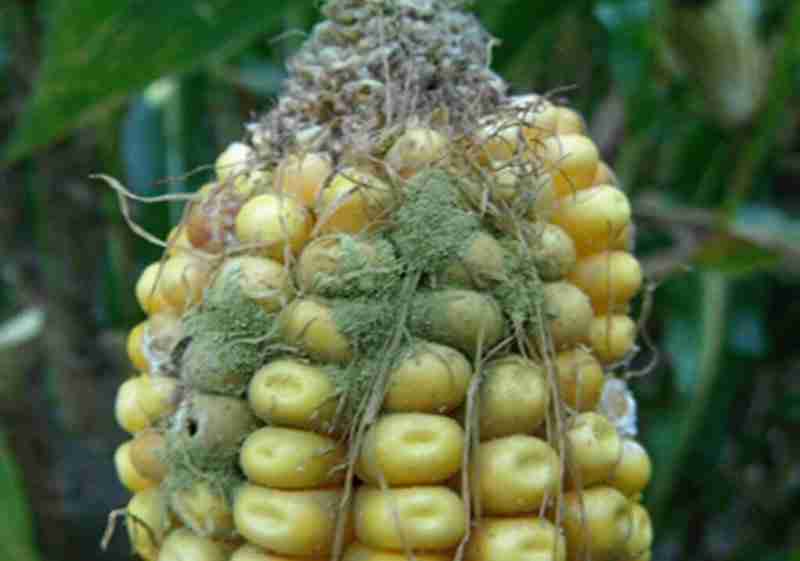A Greenpeace-endorsed lawsuit to prevent Kenya’s government from importing maize to ease predicted food shortages has been rendered moot due to a typographical error.
Raising the specter of food safety, Kenyan activist Okiya Omtatah had filed suit to stop the imports, winning a temporary stay from the nation’s High Court and praise from Greenpeace.
The legal move came as Kenya is struggling to deal with significant crop losses caused by heavy rains, flooding and a locust invasion, as well as a food chain disrupted by the effects of the novel coronavirus pandemic.
Meanwhile, the country’s strategic grain reserves have been contaminated by aflatoxin, a mold-related toxin known to cause cancer and other health problems, prompting the government to destroy 124,625 50-kilogram bags of condemned maize stocks.
In response, the Kenyan government announced plans to import 2 million bags of white maize for human consumption and an additional 2 million bags of yellow maize for animal feed between the end of June and mid-July. The government published its intent to import the non-genetically modified (GM) maize from Mexico in a legal notice in the Gazette newspaper.
But Omtatah filed a legal challenge in which he referenced the imports as “poisonous maize” — a claim picked up by at least one Kenya newspaper and referenced by Greenpeace Africa campaigner Amos Wemanya, who said the imported maize “could present food safety issues.”
However, Professor Hamadi Boga, principal secretary of Kenya’s State Department of Agriculture and Food Crops in the Ministry of Agriculture Livestock, Fisheries and Cooperatives, said the government had amended the Gazette notice and corrected the aflatoxin standards for the imported maize from 10 parts per million to 10 parts per billion. The National Treasury had erroneously substituted an “m” for the “b,” he noted.
“It was a typo error not a policy issue and we have since alerted them. The previous notice was cancelled,’’ Boga clarified. “This means that there is no case now to prosecute. We are confident that the 4 million bags will be delivered.”
Meanwhile, according to small scale millers, the first three ships carrying 60,000 tons of maize have already left Mexico and will dock in Kenya in mid-June.
Though the legal challenge focused on food safety, it was driven in part by Greenpeace’s effort to curry favor with smallholder farmers as it was accompanied by calls to purchase the grain locally. Greenpeace Africa has been pushing for adoption of an agroecology approach to farming, which emphasizes zero use of chemicals and GM crops. Hellen Dena, Greenpeace Africa’s communication officer, said the group has helped over 600 smallholder farmers adopt agroecology in Eastern Kenya.
But that region has been hit hardest by food insecurity, as evidenced the food balance sheet from the ministry of agriculture.
Still, Dena believes that Kenya has enough food and is importing maize because it doesn’t want to pay local farmers — a view echoed by Wemanya in a press statement:
“Cheap importation of subsidized maize into Kenya reduces the market for local maize that is produced by mainly smallholder farmers who feed Kenyans. This leaves many farmers and workers in the agricultural related industries without a source of income,” he stated.
But the pending food shortage is real, according to Tharaka Nithi County Gov. Muthomi Njuki, who chairs the Council of Governors’ Agriculture Committee. He pointed to the government’s new COVID-19 food security “war room” and hotline, a strategy that helps the county and national governments monitor, collect and share real-time data on access to water and food affordability and availability throughout the pandemic.
“The data generated ensures that food demand and supply are mainstreamed in the country,” Njuki said. “So far, we can ascertain that we have food that can last up to the end of June. But onwards, we will not have enough food until next harvest.”
The 2019 long and short rains resulted in a production of about 43.3 million (90kg) bags of maize, which is a slight decline compared to 44.5 million bags produced in 2018, said Agriculture Cabinet Secretary Peter Munya.
Boga explained that the government supports agroecology for those who prefer that approach. “But we recommend the use of all safe technologies. So far, I have not come across any GMO that is not safe. It is my firm belief that GMO would promote agroecology more as [pest-resistant] Bt strains are part of our agroecology,” Boga told the Alliance for Science.
Experts say that Kenya can meet its own maize demand if the country embraces superior seed with the ability to fight pests and drought. But Greenpeace has launched a spirited campaign against farmers accessing improved seeds, such as GMOs that could boost yields and possibly cut the need for imports.
Kenya’s smallholder farmers also are grappling with plant pests and diseases, such as fall armyworm, stem borer and maize lethal necrosis, as well as low soil fertility. These lead to persistent low yields that agroecology has failed to address.
The government, meanwhile, has its own campaign for supporting smallholder farmers and staving off famine. This past February, it launched the Agriculture Sector Transformation and Growth Strategy (ASTGS) 2018-2022, which is expected to achieve 100 percent food and nutrition security while contributing to a healthy nation, employment and wealth creation, according to Cabinet Secretary Munya.
In the strategy, the government outlines the utilization of GM crops, the adoption of climate-smart and conservation agriculture and building on lessons learned from prior strategies. “It takes an evidence-based approach for implementation and delivery,” Munya explained.
This article ran at Cornell Alliance for Science website and has been republished here with permission. Follow the Alliance for Science on Twitter @ScienceAlly



































